Brides trapped as UK slaves rescued by charity
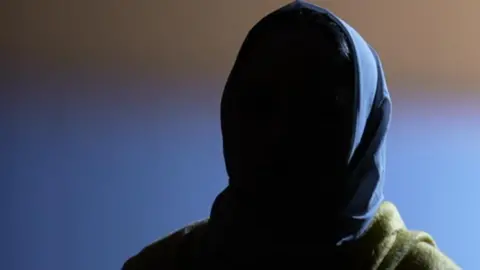 BBC
BBC“They used to call me a slave, say you are here to clean the house."
Zoya - not her real name - was a professional woman with a degree and a good job in Pakistan but when she came to Birmingham she said she was locked in her in-laws' house.
"They used to say that if I ran away then the police would send me to jail,” she told BBC News.
She was among women brought to England as brides, then trapped in their homes and used as domestic slaves, a charity in the city said.
They were part of 1,000 black and Asian women helped by the group, Roshni, to escape from physical, sexual and emotional harm last year.
None of them have returned to their abusers, the charity claimed.
“When I came to the charity, I had nothing. Today I have my house, I can sleep well. I have my bank account, my ID. I have everything and it’s because of their support," Zoya said.
They said the women and children they help have no documents, no passports, no identity and live in fear of being deported.
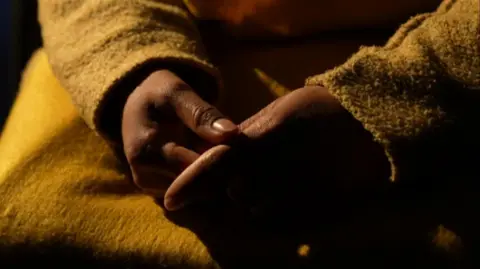
One woman who Roshni helped did not know how to spell her name and never had a bank account or any form of ID, the charity's chief executive Surwat Sohail said.
"I asked her how to spell her name, she doesn’t know. She knew her name but not how to spell it," she added.
"We had to try and find out who she is and find her passport so she can regain her identity."
Alishba, also not her real name, had to watch her family eat while she went hungry.
“I didn’t have money for food. They said it was his money and not mine,” she said.
"I was really scared as they said they’d deport me and take my child."
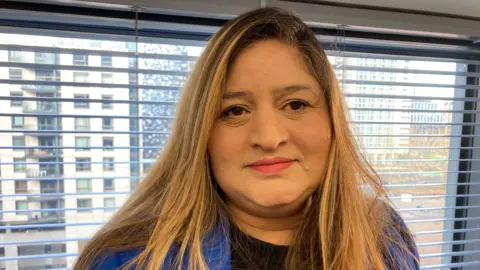
Many of the brides were abused by their in-laws and rarely saw their husbands after their marriage, Dr Sohail said.
"They know that if they’re sent back, deported, they will be looked down upon, they’ll probably get forced into marrying somebody three times their age,” she said.
“Culture, honour and language barriers are used to control and abuse black and Asian women. The biggest threat that perpetrators use is that they’ll take away their children and deport them.”
Naila - not her real name - was physically abused by her father-in-law and thrown out of her house.
“They said if I told the police I’d get sent back to Pakistan and I’d have to leave the kids here. That’s why I was so scared,” she said.
In 2022, 1.7 million women in the UK experienced domestic abuse, according to Women’s Aid.
On average, women ask for help 11 times before they can escape domestic violence but for women belonging to ethnic minorities the figure rises to 17 times, women's rights charity The Fawcett Society reported.
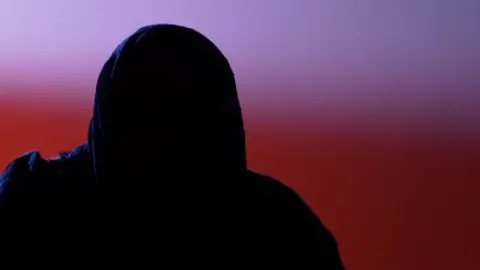
Many of the women helped by Roshni were passed from their fathers and brothers to their husbands who took over the control, Dr Sohail said.
"They are left with no identity, no choice of their own, the whole process is controlled by others."
The charity said specific funding for the abuse faced by black and Asian women was vital. They are backed by the Smallwood Trust, the National Lottery and the Caring Family Foundation.
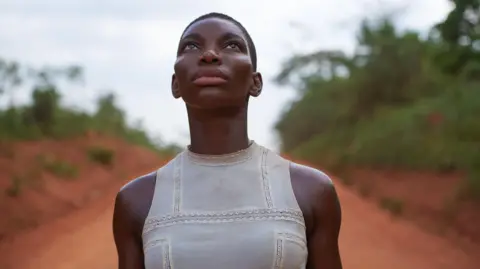 Black Earth Rising
Black Earth RisingActress Michaela Cole is involved with the Caring Family Foundation.
"I’m a supporter of The Caring Family Foundation and the wonderful domestic abuse work they do with such great organisations as Roshni," she said.
Roshni said it also worked closely with West Midlands Police and area's police and crime commissioner (PCC) and received funding from the PCC budget.
If you've been affected by the issues raised in this report, the BBC Action Line has a list of organisations that may be able to help.
Follow BBC West Midlands on Facebook, X, and Instagram. Send your story ideas to: [email protected]
